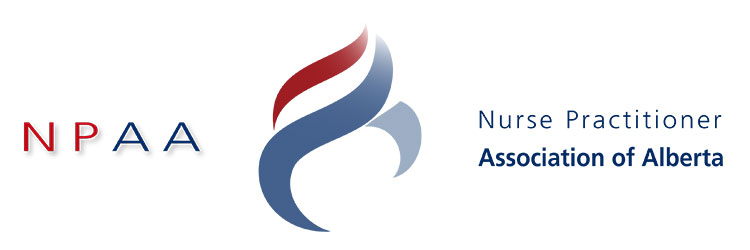Practice Area: Wabamun Medical Clinic PCN Years of Practice: 2
What prompted you to consider moving into an Advanced Practice role in Nursing?
Even during my RN education, I planned to become a Nurse Practitioner. I had the pleasure of being taught by Nurse Practitioners for two of my courses at the University of Alberta and the role intrigued me. I think there is much value to early exposure to the NP role in influencing others to pursue the NP career.
Why/How did you make the transition from RN work through your advanced degree and into NP practice?
I was fortunate to work as an RN in a role that was one of my dreams! I spent five years in Perioperative Nursing before pursuing my NP degree. I loved it! But I still wanted more. I wanted the autonomy of decision making that impacted my patients and the ability to build lasting connections with the people I was caring for. I started looking into options and remembered the Nurse Practitioners I had met during my RN degree.
My initial NP role was at a Family Practice Clinic with several physicians. It was a great position with a supportive team. I spent one year at that clinic and then transitioned into my current independent solo practice role at the Wabamun Medical Clinic.
Can you tell us a bit about your clinical environment (e.g., where you work, with whom you collaborate, etc).
My clinic is in the Village of Wabamun about one hour west of Edmonton. It is a primary care clinic and my role is very independent as I am the only practitioner. I am able to take an interdisciplinary approach to care through working closely with the local pharmacist and services available through the PCN such as community connectors and social workers. I am fortunate to have an excellent MOA who does all of my scheduling and acts as my referral coordinator.
How does your role fit within established health care roles in your work area?
As an independent practitioner I serve a wide rural patient population of all ages. The clinic I serve is in place to help create a medical home for the rural community and reduce barriers to health care. As much as possible I utilize local specialists and resources in order to address patient needs. The clinic I work in is a collaboration between several stakeholders and funding entities that ensure its success.
What does your typical day look like?
Most days are quite busy. The first part of the day is spent checking labs and any incoming consultations so that urgent issues can be addressed. A typical day has sixteen to twenty patients booked with additional appointments saved for higher acuity concerns. Lab results that need same day attention are scheduled in-between visits. I allocate any down time to administrative work such as referrals and collaborating with other health care professionals to ensure continuity of care.
Describe one significant learning about the role of the NP within your current practice environment.
I had to learn quickly how to find and access resources for patients. My role is not always strictly medical in nature, it addresses many needs of patients including social determinants of health. Addressing the needs of the patient as a whole can be challenging in a rural setting.
What is one thing you wished you knew before starting in your current position? Describe the challenges you face in your position.
I wish I would have known how lonely it would feel! And as I say this I realize that I also knew I would feel this way being the only one in a rural clinic. I am fortunate to have colleagues to bounce ideas off of but the reality of being the only person in a clinic set in pretty quickly! Practitioners are all doing their best to serve people in an atmosphere of limited funding and resources. Knowing how to access and utilize resources is a whole learning curve of its own.
How can the NPAA support NPs working in your practice area?
The mentorship program will benefit Primary care NPs tremendously. Novice NPs need support with clinical decision making as they grow their practice. Having support is key to building confidence in practice. Additionally, running educational sessions relevant to primary care are valuable. As the role of the Primary Care NP in Alberta increases there is a need for support and education specific to this role.
What is one thing that you think NPs should be pursuing, as a group of professionals working towards the future of healthcare in AB?
As a group it is important to advocate for more funding for the Primary Care NP role. We serve to fill a large need for practitioners in the province and are able to do so independently.
What do you feel is the biggest impact of the role of the NP in your practice setting?
Many residents in the area I serve were unattached to a clinic or had barriers to care such as transportation. My role as an NP in this rural community allows for many people to have a medical home with comprehensive care. It is not uncommon for a new patient to not have seen a provider for quite some time and need a comprehensive review of their health care picture. I am grateful to be in a position to provide this care for the community.
Advice for NP students who want to work in your field?
You will never stop learning in Primary Care. Each day is different and it is a challenging and rewarding environment to work in. As a generalist you have to know something about everything and this can be overwhelming at the start. Having a supportive environment and building a care team to collaborate with is key. Remember to be your own advocate! Advocating for yourself as a practitioner and your needs as a novice NP is a great skill to have.


